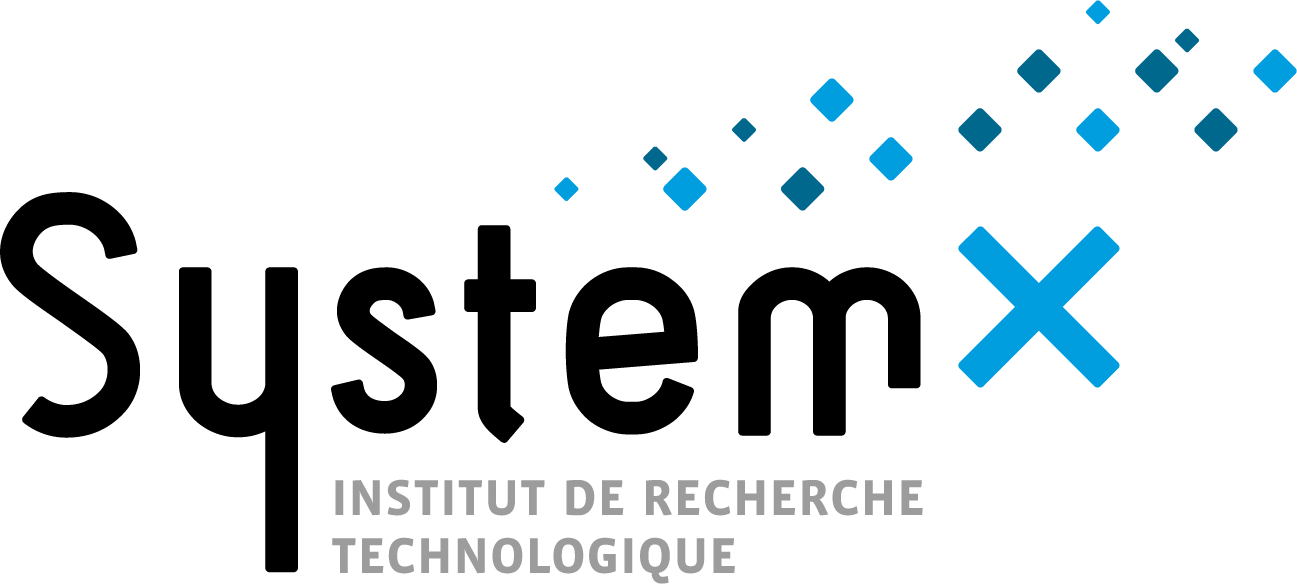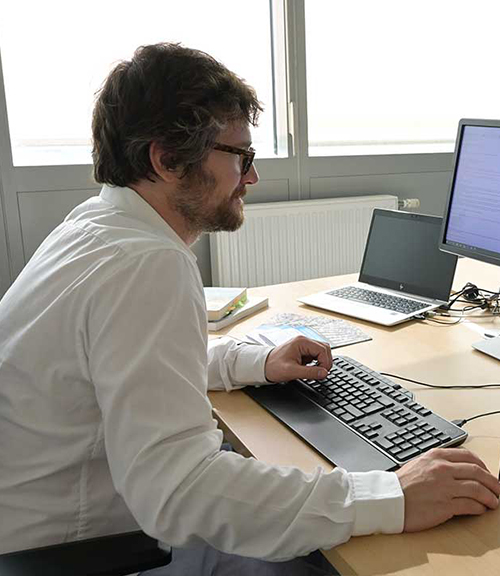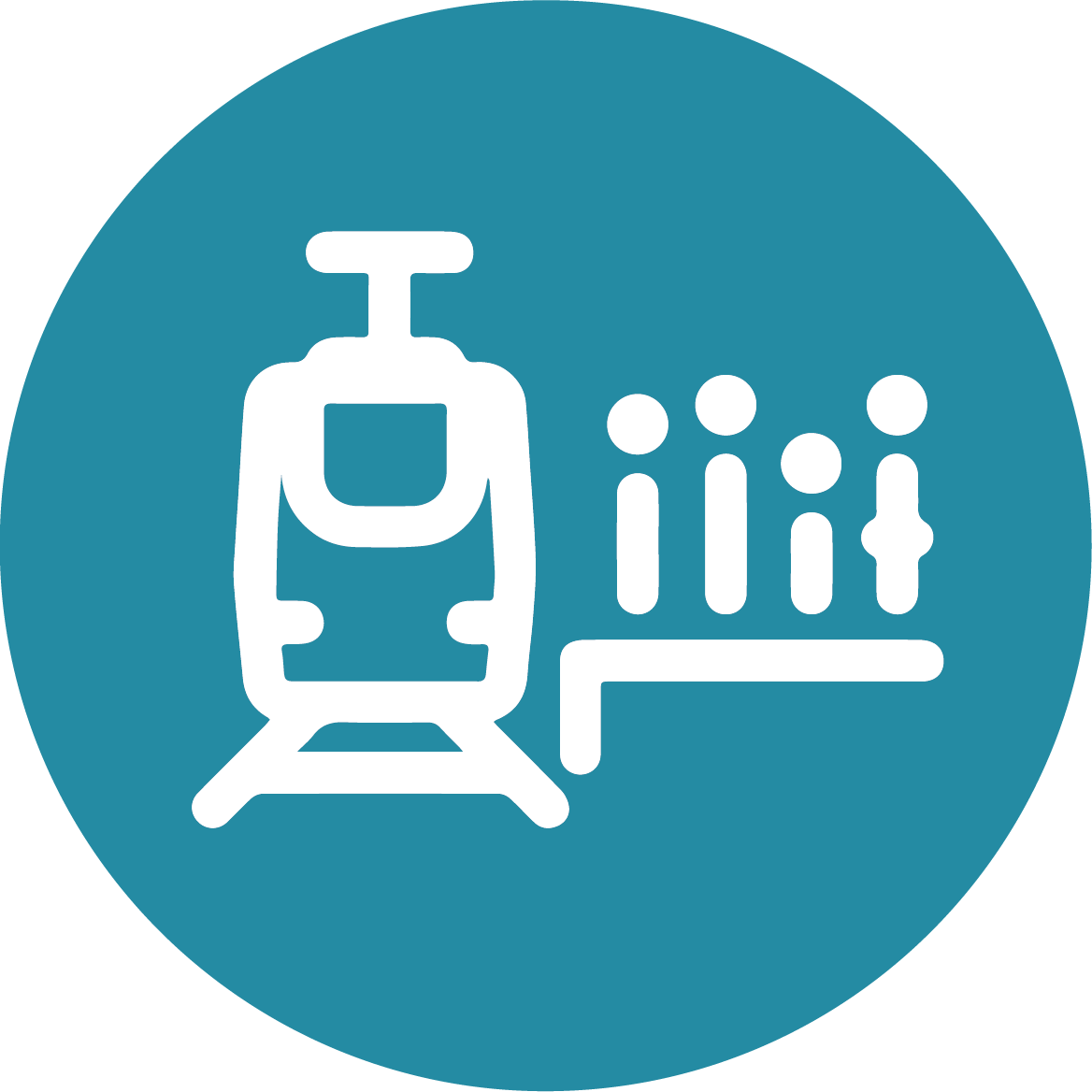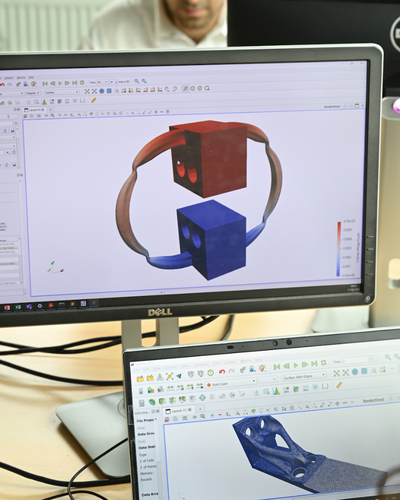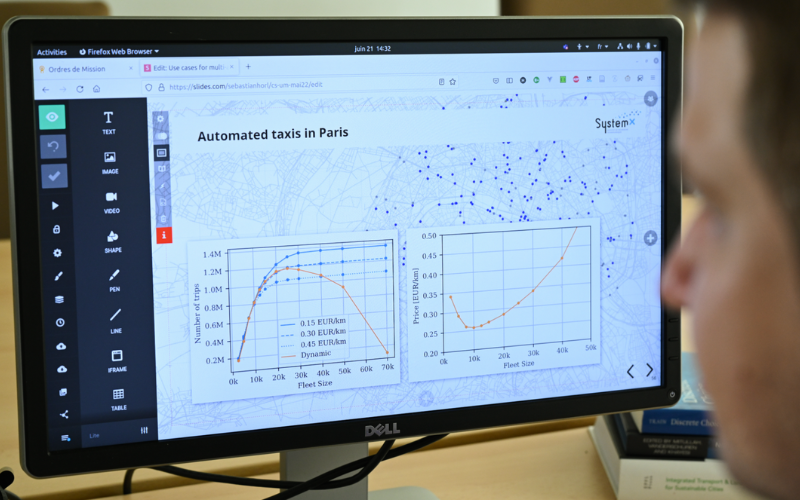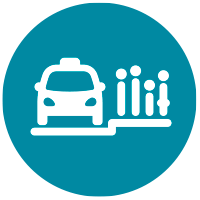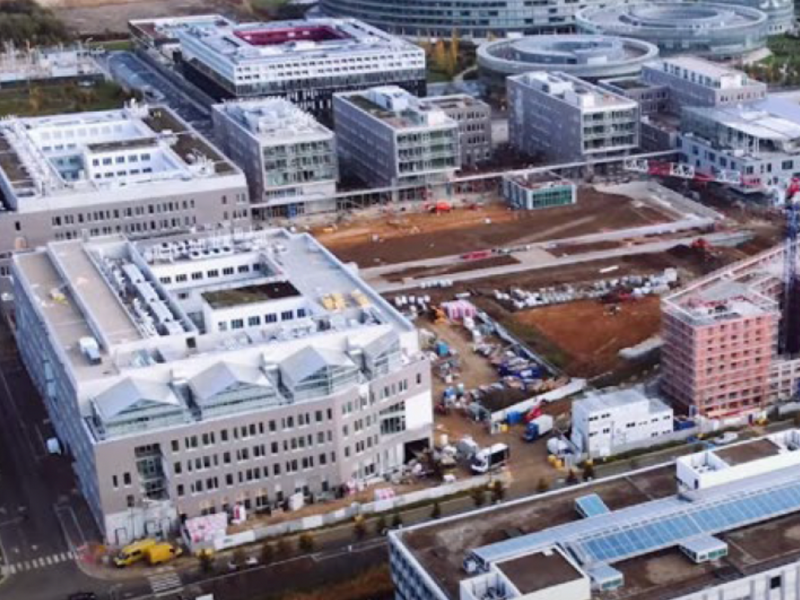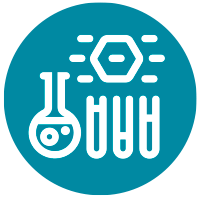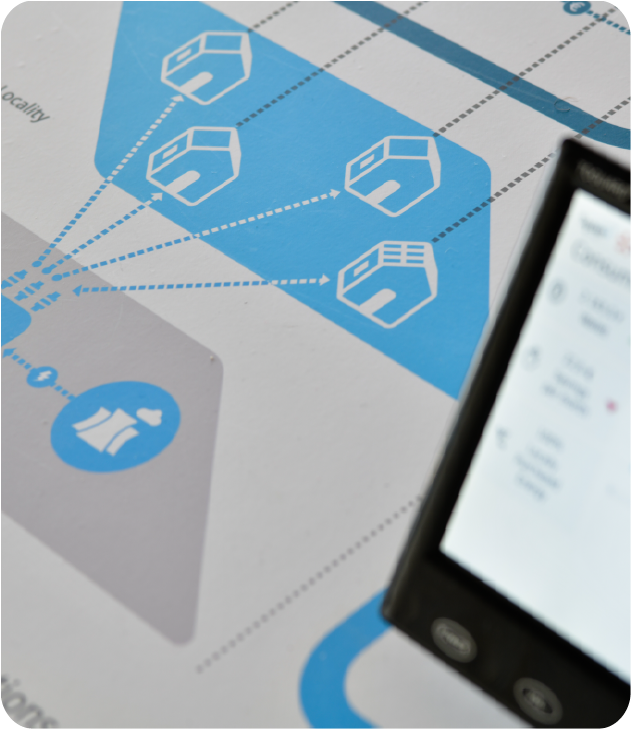A first of its kind in France, supported by SystemX and CentraleSupélec and financed by five industrial partners (Alstom, ENGIE, RATP, Renault Group, SNCF), the Anthropolis Chair has for four years brought together a multidisciplinary team dedicated to placing the human at the centre of innovations for urban mobility systems.
The research activities of the Anthropolis Chair have focused on eco-innovations for sustainable urban and peri-urban development at the service of citizens and communities, tak-ing into account the interactions between mo-bility (of individuals and goods) and other sys-tems. The design, modelling and optimisation of shared mobility services, which can integrate autonomous vehicles, were thus explored. Four doctoral theses, ambitious innovation projects and national and international collaborations. The work carried out by the Anthropolis Chair team has contributed to advancing the state of the art in the field of urban mobility:
Two theses have been carried out on the modelling of the passenger experience and the synchronisation of passenger and freight flows in urban mobility systems. The results of this work have made a major contribution to advancing the Chair’s research work. By combining the viewpoints of user experience design and transport, the first thesis contributed to a deeper understanding of how travellers experience their journeys and the problems they encounter. The second thesis proposed algorithmic models to analyse the impact of shared mobility systems and to as-sist in their operational implementation.
The chair has also been involved in the di-rection of two complementary theses on the design, modelling and simulation of robotic taxi services and on the optimisation of operations for delivery robots in urban environments. These theses have extended the Chair’s vision and added a thorough understanding of the design of transport services based on autonomous vehicles.
The supervision of two innovation projects carried out with CentraleSupélec students consisting of a systematic exploration of unsatisfactory uses and situations have led to the emergence of “pockets of value”.
Numerous national and international collaborations have been set up, including those with the Square Paris team, the MADP (Mutations de l’Action publique et du Droit public) chair at Sciences Po, the Technical University of Eindhoven (Netherlands), the Austrian Institute of Technology (AIT in Vienna), the TUMCREATE autonomous mobility research platform (Singapore), and the prospective workshop “la vie robomobile” led by the Ministry of Transport. These collaborations have enriched the reflections that have taken place, by adding multidisciplinary and international points of view, leading to joint publications with researchers from other institutions.
Finally, a total of 35 publications were published in scientific journals or presented at conferences.
The industrial Engineering Laboratory (LGI) of CentraleSupélec is an early partner of IRT SystemX. Through multi-partner projects in the automotive and aeronautics fields, but also through the Anthropolis chair on new uses of urban mobility. This partnership has resulted in seven theses being defended and five in progress. The open innovation practiced by the institute enables researchers of the LGI to take advantage of quality scientific leadership on themes such as system engineering, blockchain or mobility of the future. In return, SystemX benefits from the expertise of the LGI researchers, openings at Centrale Beijing and Centrale Casablanca, and opportunities to submit projects on behalf of CentraleSupélec.
Interview

Jakob Puchinger
Anthropolis Chairholder,
IRT SystemX – CentraleSupélec
What was the context for the creation of the Anthropolis Chair?
The landscape of urban mobility is changing. In recent years, we have seen a general awareness of the negative environmental impact of mobility and a shared desire to make daily life in our cities more humane and pleasant. Technological upheavals related to automation and electrification of cars, as well as new micromobility offers will induce changes in our mobility system. We therefore identified, together with our industrial partners, the need to explore this field within the framework of the Anthropolis Chair.
What were its priority areas of research ?
The strand on “Understanding uses” focused on user-centred approaches to the daily mobility of people in a given area (e.g. the Plateau de Saclay or La Défense). This mobility is characterised by constrained or unconstrained, daily or occasional movements. Our research led to the characterisation of the quality and problems of commuting in a “door-to-door” vision of traveller profiles and to the modelling of traveller experiences. The strand on “Foresight and Innovation” was dedicated to breakthrough objects that could bring about radical changes in urban mobility. In particular we were interested in how to conceive prospective mobility scenarios up to to 2030, and we have introduced an original vision of this, based on the construction of the personae. The strand on “Impact analysis”, within which we have developed models and methods for optimisation and simulation that take into account the objectives of the users and operators of these systems. Different hypotheses of mobility transformation have been examined, be it the evolution of mobility ecosystems, the transformation of business models, or the sustainability of mobility services and systems.
What is the most compelling result you have achieved?
This is our analysis of shared mobility systems with a focus on shared autonomous electric vehicles: we have succeeded in approaching this topic from a systemic point of view by taking into account and combining qualitative aspects (user perception and integration into the mobility system) and quantitative aspects (optimisation, simulation and impact on urban traffic). A number of important publications have resulted from this analysis, including a publication co-signed by three doctoral students of the chair.
Focus
An extension of the work of the chair
The Anthropolis Chair has initiated the extension of its exploratory work on the challenges of tomorrow’s urban mobility for a period of four years. This “2nd edition” identifies the fundamental methods and tools to take into account the needs of the citizenuser, the city and the community in the process of designing mobility systems and services. It will give an important place to the reduction of greenhouse gas emissions produced by the movement of goods and people, as well as to the improvement of air quality.
- Co-holding with the LGI laboratory of CentraleSupélec, University of Paris-Saclay
- Duration: 4 years, starting in 2019
- Team: 2 senior researchers, 4 PhD students
- 3 lines of research: Future mobility and urban life, MaaS (Mobility as a Service), Infrastructures of the future
- 4 industrial partners: EDF, Engie, Nokia Bell Labs, Renault Group
- 1 institutional partner: Paris-Saclay Agglomeration Community
